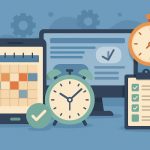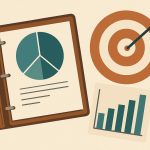Most of us don’t plan on falling into debt. It just kind of sneaks up on you. One moment you’re using your credit card for small things here and there and before you know it the balance has grown into something scary. The truth is debt can start out feeling helpful or harmless but if you’re not careful it can trap you in a cycle that’s hard to escape.
While there’s no magic button to make debt disappear there are ways to avoid the most common mistakes that keep people stuck. Whether you’re just starting to use credit or you’re already dealing with debt it’s important to know what traps to watch out for and how to avoid them.
Some people turn to solutions like personal loan debt relief when things get tough. That can help simplify payments and lower interest rates but it’s also important to understand the habits that led to the debt in the first place so you don’t repeat the cycle.
Ignoring the True Cost of Minimum Payments
A lot of people think that as long as they make the minimum payment on their credit cards they’re in good shape. But this is one of the biggest pitfalls. When you only pay the minimum you’re mostly covering interest not the actual balance.
This means it could take years or even decades to pay off your debt and you’ll end up paying much more than you borrowed. To avoid this try to pay more than the minimum whenever you can. Even a little extra goes a long way toward cutting down interest and getting you debt-free faster.
Using Credit as Extra Income
Credit cards and loans can feel like extra money but they’re not. They’re borrowed money you’ll have to pay back often with interest. Some people use credit to cover basic living expenses thinking they’ll catch up later.
The problem is that “later” rarely comes and the debt keeps growing. Instead focus on living within your means and creating a budget that fits your actual income. If you find yourself reaching for credit to make ends meet it might be time to look at ways to cut expenses or find extra sources of income.
Not Having an Emergency Fund
Life has a way of throwing surprises at us. A car repair a medical bill or a sudden job loss can quickly turn into debt if you don’t have savings to cover it.
An emergency fund acts as a safety net so you don’t have to rely on credit cards or loans every time something unexpected happens. You don’t have to save a huge amount overnight. Start small. Even putting aside a few dollars each week can add up over time and give you some breathing room when you need it most.
Falling for “Buy Now Pay Later” Traps
It seems like every store offers a “buy now pay later” option these days. It can feel like an easy way to get what you want without hurting your budget right now. But these programs often lead to spending more than you can afford and piling up unexpected debt.
Before using one of these services ask yourself if you’d still buy the item if you had to pay in full today. If the answer is no that’s a good sign you might want to hold off.
Not Tracking Your Spending
One of the easiest ways to end up in debt is by not paying attention to where your money goes. Those small purchases — coffee runs streaming subscriptions or impulse buys — add up faster than you think.
Tracking your spending doesn’t have to mean creating complicated spreadsheets. You can use a simple notebook an app or even your phone’s notes. The goal is to be aware of where every dollar goes so you can make choices that keep you on track.
Taking on New Debt to Pay Off Old Debt
Sometimes people take out a new loan or open a new credit card to pay off other debts thinking they’re solving the problem. But this can lead to an even deeper hole if you don’t change the spending habits that caused the debt in the first place.
If you do decide to consolidate debts or use personal loan debt relief make sure you also have a plan to adjust your spending so you don’t end up with new balances on top of the old ones.
Final Thoughts
Avoiding common debt pitfalls isn’t about never using credit or living a life without nice things. It’s about making smart decisions and knowing the difference between wants and needs. It’s about creating a safety net so life’s surprises don’t turn into financial disasters.
Remember it’s okay to ask for help whether it’s talking to a financial advisor exploring personal loan debt relief options or just getting support from a trusted friend or family member. The key is to stay aware and take small steps that protect your financial future.
Debt doesn’t have to control your life. By avoiding these common mistakes and staying mindful of your choices you can build a healthier relationship with money and create the freedom to focus on what really matters to you.
Lynn Martelli is an editor at Readability. She received her MFA in Creative Writing from Antioch University and has worked as an editor for over 10 years. Lynn has edited a wide variety of books, including fiction, non-fiction, memoirs, and more. In her free time, Lynn enjoys reading, writing, and spending time with her family and friends.















